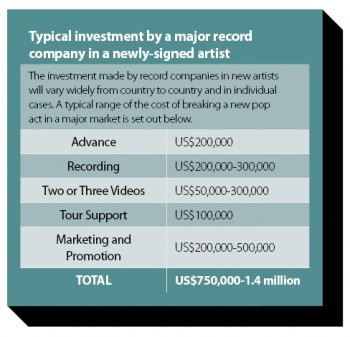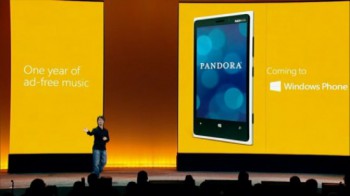Music Business
9TH WONDER INTERVIEW: The Art of Sampling
Hip Hop producer 9th Wonder on his trip to London in April 2009. He talks to SoulCulture.co.uk about the art of sampling, why producers that sample are misunderstood by older generations, current work with Wale and David Banner – and why putting his face out there is so important now in an age where, often, music is seen before it’s heard.
It Gets Worse: Pandora Executives Have Dumped $63 Million In Stock In the Last Year Alone
When you think of Pandora, you probably think about ‘music genomes’ or your favorite artist-targeted station. But here’s another association: seriously rich executives, all of whom are working diligently to pay artists less.
Last week, we were tipped to a pattern of stock-dumping by founder Tim Westergren, to the tune of more than $9 million this year alone. That’s hard to reconcile with Westergren’s more grassroots appeal to lower artist royalties and save internet radio, an emotional pitch based partly on Westergren’s former life as a struggling musician.
The question is whether this sort of thing is worth saving, especially from a public policy standpoint. Pandora isn’t a profitable enterprise, and Westergren is arguing on Capitol Hill that unfairly-high royalties are threatening its long-term existence (as well as the internet radio sector as a whole). But regardless of whether Pandora makes it or not, this company has become a massive money tree for a very small group of executives. According to more documents discovered this week, the handful of Pandora brass has dumped about $63 million in shares in the past year alone, thanks largely to the lifting of a post-IPO selling restriction window.
All of these cash-outs are filed by law with the Securities & Exchange Commission (SEC), and therefore publicly available. The pile of Pandora sales have been assembled by ‘SEC Form 4,’ a site that tracks insider trading activity (just part of page one is above). In addition to the sell-offs, Form 4 also finds Pandora executives buying less than $500,000 of their own shares over the same period. The math results in a net dump-off of nearly $62.8 million.
In an earlier discussion with Digital Music News, Westergren noted that lots of similarly-situated executives do the same thing, and underscored his bullishness in the company. Perhaps ‘bullish’ comes in degrees: Pandora is a troubled, low-lying stock with a very uncertain outlook, especially if Congress doesn’t play along. These executives seem to be acting accordingly. [DigitalMusicNews]
Forbes Names Top 6 Grossing Dead Musicians
“Forbes, the king of The “Richest ________ ” lists, has declared the King Of Pop, Michael Jackson, the top grossing dead musician of 2012. The post-1950′s era of rock and pop has been good to it’s most sucessful purveyers, with only one top grossing artist reaching back from the grave to earn $5 million or more”. The Top 6 Grossing Dead Musicians:
1. Michael Jackson ($145 million)
2. Elvis Presley ($55 million)
3. Bob Marley ($17 million)
4. John Lennon ($12 million)
5. Richard Rogers ($6 million)
6. George Harrison ($5.5 million)
Pandora Goes Ad-Free For Windows 8 Phone
At the beginning of 2013, Pandora will be ad-free for all Windows 8 owners throughout the entire year. I think this is a good marketing plan, but I am not sure how much it will drive sales. It is definitely a good start to create attention for the newest phone from Microsoft. I also wondered how they were able to work out a deal like this, so the snippet below should provide some insight:
“Pandora charges $3 per month for ad-free Pandora, or $36 per year. It’s not clear what Microsoft is paying Pandora to make this happen, but it could be as much as $36 for each Windows Phone 8 that it sells, if Microsoft is “paying retail,” as it were.” [AlLindstrom]




